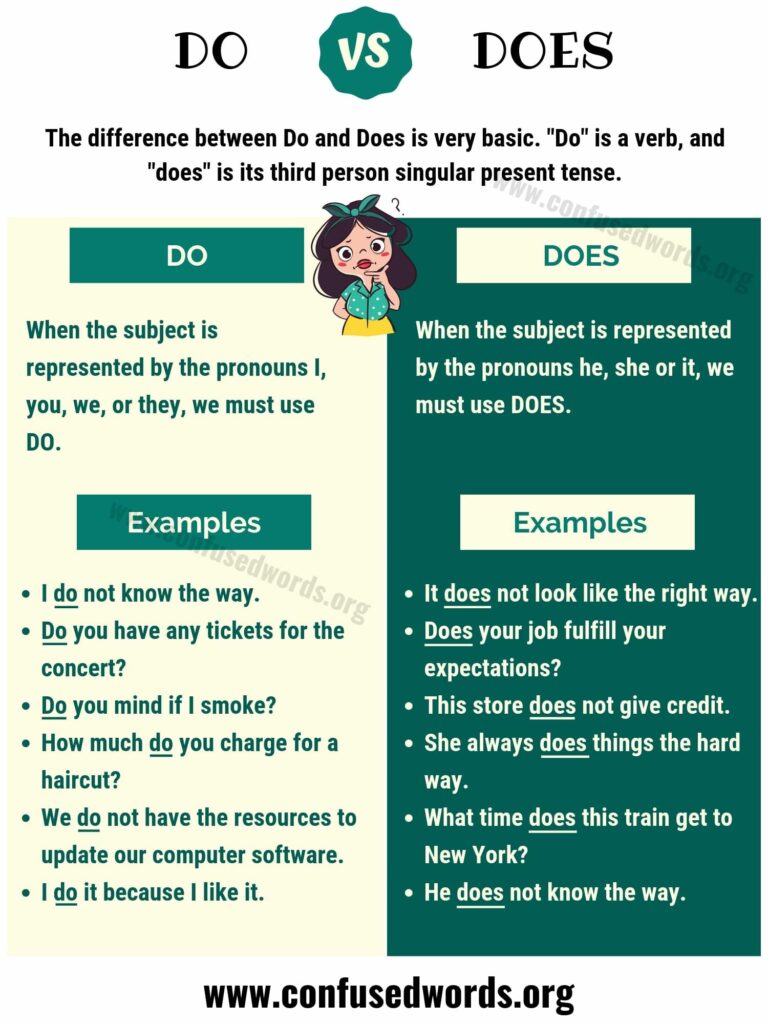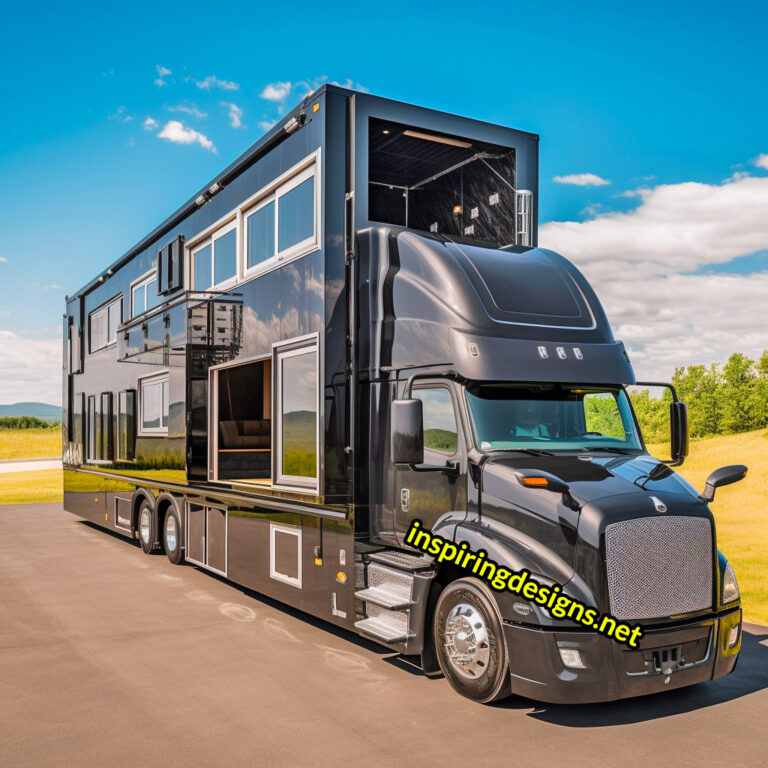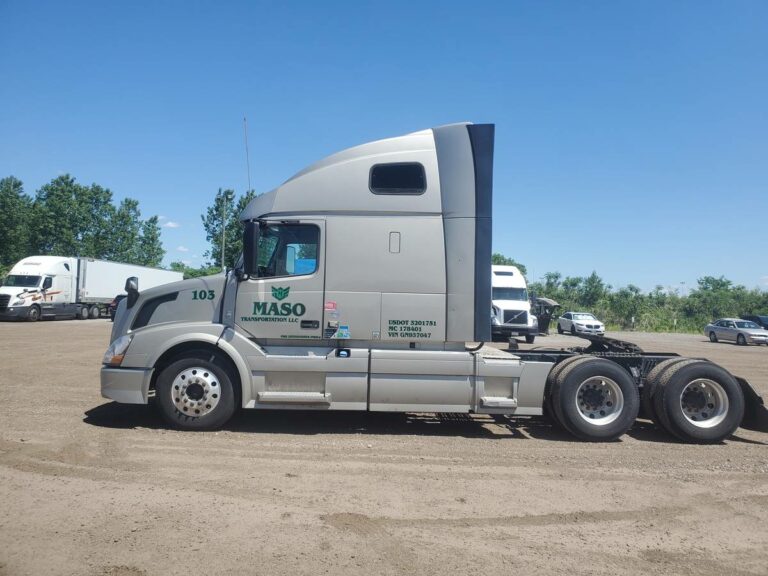Repo Truck: The Unseen Force of Asset Recovery
Repo Truck: The Unseen Force of Asset Recovery cars.truckstrend.com
In the intricate dance of modern finance and personal responsibility, few vehicles play as critical and often misunderstood a role as the repo truck. Far more than just a specialized tow truck, the repo truck is the frontline instrument of asset recovery, a crucial tool for lenders seeking to mitigate risk when borrowers default on their vehicle loans. It represents the final, tangible step in a complex legal and financial process, bridging the gap between a loan agreement and the physical reclamation of collateral. This comprehensive guide will delve into the world of repo trucks, exploring their diverse forms, the nuanced processes they facilitate, and the significant legal and ethical considerations that govern their operation, providing a clearer understanding of this essential, yet often contentious, aspect of the financial ecosystem.
I. What Exactly is a Repo Truck? Beyond the Stereotype
Repo Truck: The Unseen Force of Asset Recovery
At its core, a repo truck is a specialized vehicle designed and equipped for the legal repossession of automobiles, motorcycles, boats, and other forms of collateral when a borrower fails to meet the terms of their financing agreement. Unlike a standard tow truck, which typically responds to breakdowns or accidents, a repo truck operates under the legal authority granted by a lender and a specific repossession order.
Repo truck operators, often referred to as "repo agents" or "recovery specialists," are not merely drivers; they are individuals who must possess a unique blend of mechanical aptitude, legal knowledge, and de-escalation skills. Their primary objective is to locate, secure, and transport the defaulted vehicle without "breaching the peace" – a critical legal concept that prohibits the use of force, threats, or confrontation during the repossession process. They are the physical extension of a lender’s legal right to reclaim their collateral, acting within a tightly regulated framework to ensure the process is both effective and lawful.
II. Types of Repo Trucks: Tools for Every Scenario
The world of repo trucks is diverse, with various designs tailored to specific recovery situations, vehicle types, and operational stealth requirements. Each type offers distinct advantages and disadvantages, influencing how and where a repossession can be executed.
-
1. Wheel-Lift Trucks: These are perhaps the most common and versatile repo trucks. They utilize a hydraulic boom and two L-shaped arms that slide under the vehicle’s tires, lifting the front or rear wheels off the ground.
- Pros: Less likely to damage the vehicle than traditional hook-and-chain, relatively maneuverable, and efficient for quick pickups in tight spaces. They are ideal for most standard cars and light trucks.
- Cons: Can be challenging with low-clearance vehicles or those with specific suspension setups. Not suitable for all-wheel-drive vehicles without additional dollies, as lifting only two wheels can damage the drivetrain.


2. Flatbed Trucks: Also known as rollback trucks, these feature a hydraulic flatbed that tilts and slides back, allowing the vehicle to be driven or winched onto the platform.
- Pros: The safest method of transport for the repossessed vehicle, as all four wheels are off the ground, eliminating wear and tear or potential drivetrain damage. Ideal for high-end luxury cars, classic vehicles, damaged vehicles, or those with unique mechanical configurations.
- Cons: Slower to load than a wheel-lift, less maneuverable in confined spaces, and generally more expensive to operate. Their size can also make stealth difficult.

-
3. Self-Loader/Integrated Trucks (Hidden Repo Trucks): These are specialized wheel-lift trucks where the lifting mechanism is often integrated more subtly into the truck’s chassis, sometimes even concealed. They are designed for single-operator efficiency and stealth.
- Pros: Extremely efficient for a single operator, allowing for quick, often covert, hook-ups. The controls are typically accessible from inside the cab, enabling the operator to remain in a secure position. Ideal for late-night or early-morning repossessions where discretion is paramount.
- Cons: Can be more expensive to purchase and maintain due to their specialized hydraulic and electronic systems. Still subject to the limitations of two-wheel lifting for certain vehicles.
-
4. Go-Jacks and Dollies: While not a truck type, these are essential accessories used with wheel-lift trucks, particularly for all-wheel-drive vehicles or those with locked wheels. Go-jacks lift individual wheels, while dollies allow all four wheels to roll freely.
- Pros: Enable the safe repossession of vehicles that would otherwise be difficult or damaging to move.
- Cons: Require additional setup time and operator skill.
Many modern repo trucks are also equipped with advanced technology such as License Plate Recognition (LPR) systems, GPS tracking, and advanced communication tools to aid in the location and recovery process.
III. The Repossession Process: How It Works
The journey of a vehicle from a borrower’s possession to the impound lot via a repo truck is a structured process governed by legal protocols.
- Initiation: The process begins when a lender, after a borrower defaults on their loan (typically after a certain number of missed payments, as defined in the loan agreement), issues a repossession order to a licensed asset recovery company.
- Skip Tracing: The recovery company then employs "skip tracers" – specialists who use various databases, public records, and investigative techniques to locate the vehicle. This stage is crucial, as repo agents cannot simply drive around looking for cars; they need a confirmed location.
- The Act of Repossession: Once the vehicle is located, a repo truck is dispatched. The operator’s goal is to secure the vehicle quickly and safely without causing a "breach of peace." This means avoiding confrontation, threats, or any action that could incite violence. If the borrower is present and objects, and their objection constitutes a breach of peace (e.g., physical resistance, verbal threats), the agent must disengage and seek a court order (a "writ of replevin") to proceed. Most repossessions occur discreetly, often in the dead of night, to minimize interaction.
- Post-Repossession Procedures: After the vehicle is secured, it is transported to a secure impound lot or a designated facility. The recovery company is legally obligated to notify the debtor of the repossession and provide information on how to retrieve personal property found inside the vehicle. The debtor usually has a right of redemption, meaning they can reclaim the vehicle by paying the full outstanding balance, plus repossession fees and storage costs, within a specific timeframe (which varies by state). If not redeemed, the vehicle is typically sold at a public auction, with the proceeds applied to the outstanding loan balance. Any deficiency (the remaining debt after the sale) can still be pursued against the debtor.
IV. Legal & Ethical Considerations for Repo Truck Operators
The repossession industry is heavily regulated, and operators must navigate a complex web of state and federal laws to perform their duties legally and ethically.
- Laws Governing Repossession: Most repossessions fall under Article 9 of the Uniform Commercial Code (UCC), which governs secured transactions. However, individual states have their own specific laws that dictate everything from notification requirements to what constitutes a "breach of peace."
- Breach of Peace: This is the most critical legal constraint. Repo agents cannot use force, threats, or enter private, fenced property without permission (though vehicles in public spaces like driveways or common areas are generally fair game). If a confrontation arises and the debtor objects to the repossession, the agent must retreat to avoid a breach of peace, and the lender must then pursue a court order.
- Debtor Rights: Debtors have rights, including the right to receive notice of the repossession and the right to redeem the vehicle. They also have the right to retrieve their personal belongings from the repossessed vehicle, and agents are legally obligated to itemize and secure these items.
- Safety: The safety of the operator, the debtor, and the public is paramount. Agents are trained to assess situations, avoid dangerous confrontations, and operate their heavy machinery safely.
- Training & Certification: Many states require specific licensing, training, and certification for repo agents, covering legal aspects, safety protocols, and proper equipment operation. Professional associations also promote ethical conduct and best practices.
V. Challenges and Solutions in the Repo Industry
Operating a repo truck is fraught with challenges, from logistical hurdles to personal safety risks.
-
Challenges:
- Confrontational Debtors: The most significant risk is encountering angry or distressed debtors, which can escalate into verbal abuse or physical violence.
- Safety Risks: Operating heavy machinery in various environments (darkness, adverse weather, unfamiliar neighborhoods) presents inherent dangers.
- Legal Complexities: Navigating diverse state laws and constantly evolving regulations requires continuous education and vigilance.
- Technological Arms Race: Debtors use GPS blockers, hidden parking, or elaborate anti-theft measures, while lenders and agents deploy advanced LPR systems and data analytics.
- Damage Claims: False claims of vehicle damage during repossession are common.
-
Solutions:
- De-escalation Training: Crucial for managing volatile situations and preventing breaches of peace.
- Advanced Technology: Investing in LPR systems, secure communication, and robust dispatch software improves efficiency and safety.
- Strict Adherence to Law: Meticulous documentation, adherence to legal procedures, and awareness of state-specific nuances are vital for avoiding legal repercussions.
- Professional Associations: Membership in industry associations (e.g., American Recovery Association) provides resources, training, and a network for sharing best practices.
- Body Cameras: Increasingly used by agents to provide an objective record of interactions, protecting both the agent and the debtor.
VI. Practical Advice for Debtors & Lenders
Understanding the repo truck’s role can empower both sides of the loan agreement.
-
For Debtors:
- Communicate with Your Lender: If you foresee payment difficulties, contact your lender immediately. They may offer options like deferrals or modified payment plans to avoid repossession.
- Understand Your Rights: Know your state’s repossession laws. Understand what constitutes a breach of peace and your right to personal property.
- Avoid Confrontation: If a repo agent arrives, do not resist. Resistance can lead to criminal charges. Your best recourse is to understand the legal process after the fact.
- Remove Personal Property: Before repossession, if possible, remove all personal belongings. If not, make arrangements to retrieve them promptly after the vehicle is taken.
- Explore Redemption: If you wish to keep the vehicle, inquire about your right of redemption and the total amount needed to reclaim it.
-
For Lenders:
- Due Diligence: Ensure all loan agreements clearly outline repossession terms.
- Work with Reputable Agencies: Partner with licensed, insured, and professionally trained recovery companies that prioritize legal compliance and ethical conduct.
- Clear Communication: Maintain open lines of communication with debtors, providing clear information about their rights and the consequences of default.
- Proper Documentation: Ensure all repossession orders are accurate, complete, and legally sound.
Estimated Costs Associated with Repo Trucks
This table provides a general overview of costs associated with purchasing, operating, and utilizing repo trucks. Prices can vary significantly based on location, market conditions, vehicle age, and specific features.
| Item/Service | Description | Estimated Cost Range |
|---|---|---|
| New Wheel-Lift Repo Truck | Entry-level to mid-range new truck with hydraulic wheel-lift system. | $60,000 – $120,000+ |
| Used Wheel-Lift Repo Truck | Depending on age, mileage, and condition. | $25,000 – $70,000 |
| New Flatbed/Rollback Repo Truck | New heavy-duty truck with a hydraulic flatbed for full vehicle transport. | $80,000 – $150,000+ |
| Used Flatbed/Rollback Repo Truck | Depending on age, mileage, and condition. | $35,000 – $90,000 |
| Average Repossession Service Fee | Fee charged by a recovery company to the lender per successful repossession. | $300 – $700 per vehicle (varies by location/complexity) |
| Specialized Equipment | e.g., License Plate Recognition (LPR) systems, GPS, specialized dollies. | LPR Systems: $10,000 – $25,000+ per unit |
| Insurance & Licensing | Commercial auto insurance, general liability, and state-specific licenses. | $5,000 – $20,000+ per year (highly variable) |
| Maintenance & Fuel | Ongoing operational costs (oil changes, tires, repairs, diesel/gas). | $500 – $2,000+ per month per truck |
| Storage Fees (Debtor Cost) | Daily fee charged by impound lot for storage of repossessed vehicle. | $25 – $75 per day |
Frequently Asked Questions (FAQ) about Repo Trucks
Q1: What is the difference between a tow truck and a repo truck?
A1: A tow truck typically moves vehicles due to breakdown, accident, or illegal parking. A repo truck, while also towing, specifically reclaims vehicles due to a loan default, operating under legal authority from the lender and adhering to strict repossession laws.
Q2: Can a repo truck take my car from my driveway?
A2: Generally, yes. In most states, if your driveway is not fenced or gated and is easily accessible from a public street, it’s considered a public place for the purpose of repossession. However, they cannot enter your garage or break into a locked gate without a court order.
Q3: Do repo agents have to notify me before taking my car?
A3: In most states, no, prior notification is not legally required before a vehicle is repossessed. The goal is often to perform the repossession discreetly to avoid confrontation. Some states may have specific notification requirements after the repossession occurs.
Q4: What if my personal belongings are in the repossessed car?
A4: You have a legal right to retrieve your personal belongings. The repo company is required to inventory and store these items. They will typically notify you of the process to retrieve them, usually within a specific timeframe and without charging you for the personal items themselves (though storage fees for the vehicle might apply).
Q5: Can I stop a repo truck from taking my car?
A5: You can object verbally, and if that objection leads to a "breach of peace" (e.g., physical confrontation, threats), the repo agent must legally disengage. However, actively resisting or trying to physically prevent the repossession can lead to criminal charges (like obstruction of justice) and does not stop the lender’s right to eventually repossess the vehicle, often through a court order. It’s generally advised not to resist.
Q6: What happens after my car is repossessed?
A6: After repossession, your car is taken to a secure lot. You will be notified of the repossession and your right to redeem the vehicle (pay off the full loan balance plus fees) within a specific timeframe. If you don’t redeem it, the car will be sold, usually at a public auction, and the proceeds will be applied to your loan. You may still owe a "deficiency balance" if the sale price doesn’t cover your remaining debt and fees.
Q7: Are repo agents dangerous?
A7: Professional repo agents are trained to avoid confrontation and adhere to safety protocols. While the job can be inherently risky due to the nature of dealing with distressed individuals, reputable companies prioritize non-violent, lawful repossessions. Any agent who breaches the peace or uses excessive force is acting illegally and should be reported.
Conclusion
The repo truck, in its various forms, stands as a testament to the contractual obligations inherent in vehicle financing. It is a powerful piece of machinery, but more importantly, it represents the culmination of a legal process, operated by individuals who must balance mechanical skill with a deep understanding of the law and human psychology. While often viewed with apprehension, the repo truck industry plays a vital, albeit challenging, role in maintaining the integrity of the lending ecosystem. For both lenders and borrowers, understanding the functions, limitations, and legal framework surrounding repo trucks is crucial for navigating the complex landscape of asset recovery with clarity and adherence to the law.





